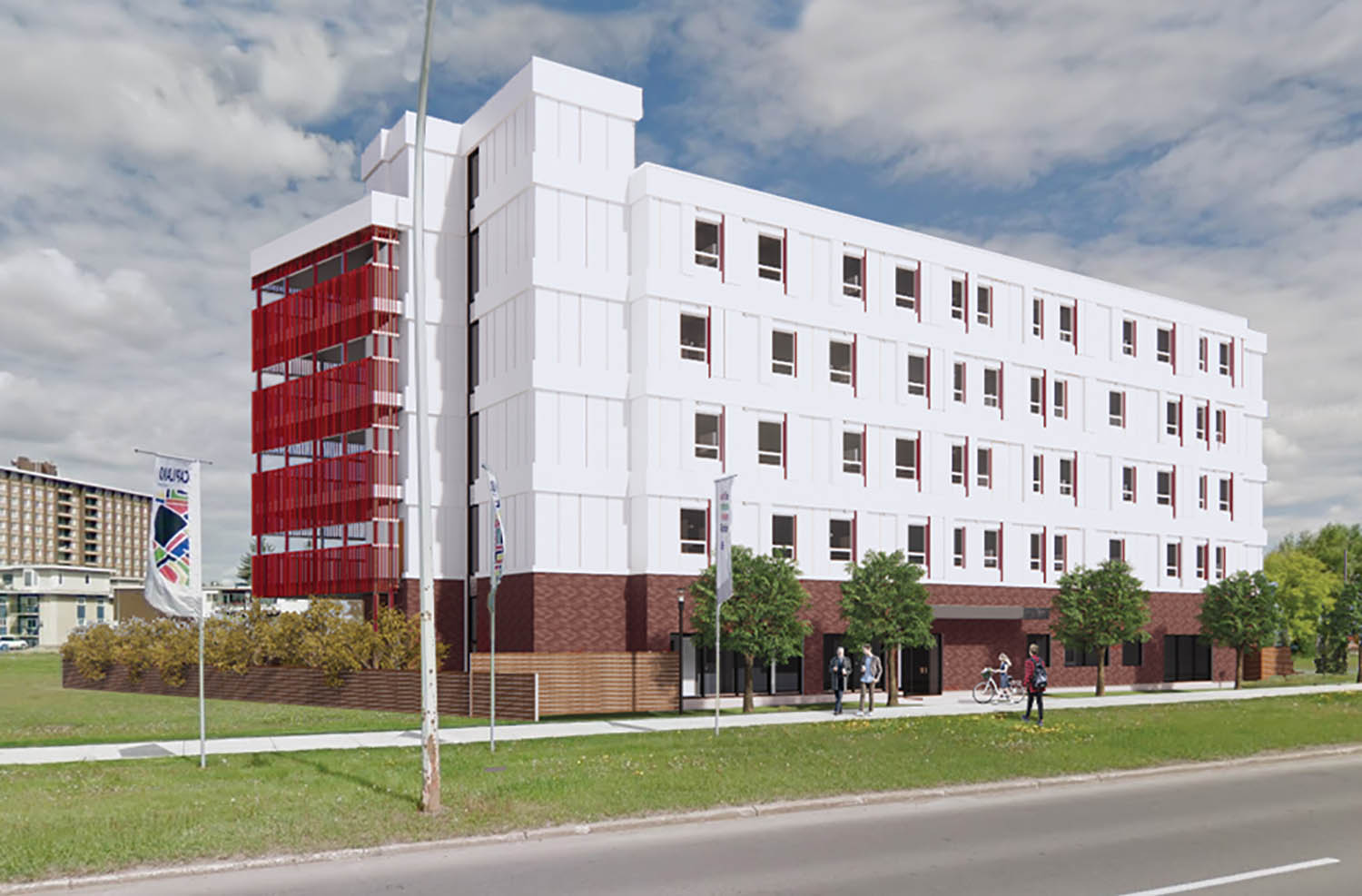Belinda, a young mom who has been living in a Homeward Trust apartment with her kids since last November, felt scrutinized and judged by neighbours in her previous, privately owned residence. She says it was as if they were just waiting for a misstep to report to her landlord. It’s very different now. “This is cultural-based housing, and with me culture is important and something I want my kids to grow up in. Here, we’re always around it, with like smudging all the time. In another kind of building, they would be questioning that.” She describes supportive housing like hers and these five new sites as “awesome” and adds, “I just hope that Homeward Trust can continue what they’re doing and maybe come up with more buildings like this to help other families.”
There is much to recommend about these new buildings. For Kjenner, it’s setting. “We’ve worked hard to ensure there is supportive housing in multiple parts of the city. They’re located near other residential, and they’re all really integrated into their neighbourhoods. They look great,” she says.
McGee is pleased by the amenities. “There is programming space and access to a common lounge where residents can build community.” One site features a commercial kitchen, but she’s hesitant to call it a teaching kitchen. “Many folks experiencing homelessness are much better chefs than I am, so I don’t presume anything in that space,” she says. But while it is not a common kitchen and residents won’t be storing their groceries there, she believes they might see it as an opportunity to bond. “They may buy food together and then divvy it up,” she says. “It just creates a space where within the building there can be a connection over food.”
Christensen appreciates the beating heart in work like this. “Sometimes you’ll build a really nice warehouse for some rich guy you’ve made richer by building him something he’s going to flip around or find a tenant for. With these types of projects, where you pulled harder when push comes to shove, when you get to open them, it means a lot more. It’s extremely rewarding,” he says.
“Projects like these offer hope, opportunity, a bridge to possibility,” says Janz. “Without a home, it’s really hard to make a life, to find dignity, to enter and continue in the world of work, to raise a family, to make friends and just to make good choices.”
